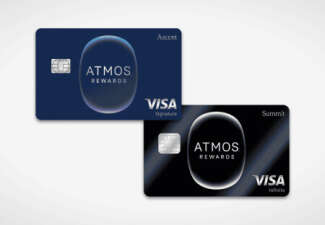The content on this page is accurate as of the posting date; however, some of the offers mentioned may have expired.

Many consumers have private label credit cards, but some are defaulting on them, according to a new Equifax National Consumer Credit Trends Report. It shows that the severe delinquency rate on private label retail credit cards is now up 57 basis points, holding at 4.65%. The outstanding balance on the defaults is now $81.7 billion, up 0.8% when compared with one year ago.
The report shows that this trend is not new—delinquencies have actually been experiencing a steady seasonal upswing since 2013. But they have now hit their highest level since 2011.
"Lots of retailers are standing at the intersection of brick and mortar versus digital, with the latter often getting the right of way—a trend the industry has seen for the last several years and it continues into 2018," said Amy Crews Cutts, Chief Economist at Equifax.
"With these higher delinquency rates in private label cards, we see that some consumers are abandoning their payment responsibilities when retailers close a local store or declare bankruptcy. This is a huge mistake as the lenders behind the private label cards are still reporting to credit bureaus and the creditors to the retailer are keen to collect any outstanding accounts receivable toward their outstanding debts.”
“The decision not to pay on these cards in the hopes that the retailer will forget them will haunt these consumers for a while and will impact their ability to take out credit in the future,” she added.
The state of debt
When looking at total debt, the report found that mortgage debt is down from 2008 levels, holding at 71.2%. In 2008, mortgage debt was at 78.4%, which was its highest level.
When looking at non-mortgage debt, credit cards actually make up just 21.4% of the total, which is down from 29.0% a decade ago. Student loan debt is now at $1.4 trillion, making up 36.9% of non-mortgage debt, up 21.8% from a decade ago. Deferred student loans make up a third of unsettled balances.
"Student loan debt is not a bad thing when students actually receive a degree," said Cutts. "However, starting college and not finishing can leave a consumer's finances in distress, with generally nothing to show for it.”
“Importantly, the $1.4 trillion in student loans reported to Equifax represents only loans still considered active—the Department of Education guarantees about $154 billion in defaulted loans on which it is still trying to collect that are no longer reported to credit bureaus," she added.
What about auto loans and leases? They make up $1.24 trillion of non-mortgage debt, which set a new record. Yet when compared to the data from a decade ago, it makes up the same share of non-mortgage debt.
The data for the Equifax National Consumer Credit Trends Report comes from the Equifax U.S. Consumer Credit database, which is comprised of information from over 220 million consumers.






